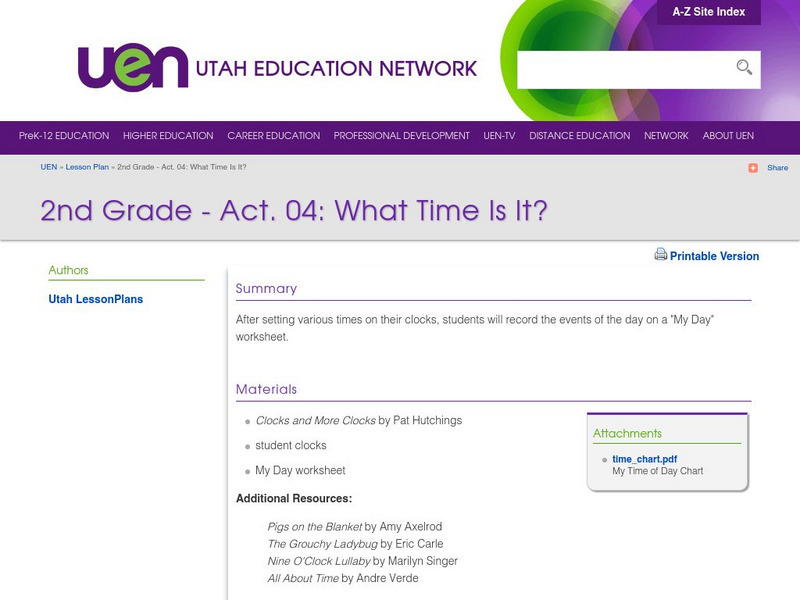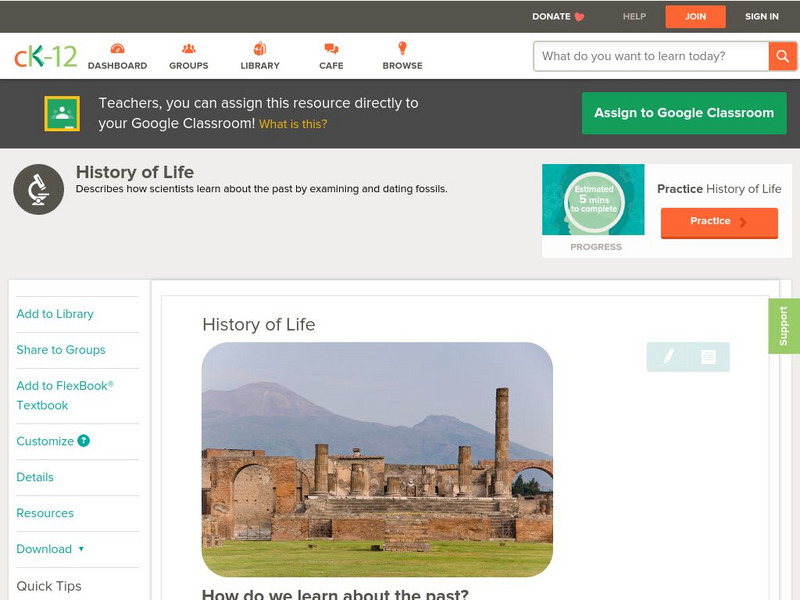Hi, what do you want to do?
Science Buddies
Science Buddies: Tick Tock, Does Your Mouse Know the Time on the Clock?
For this science fair project, you will build a device that records your nocturnal pet's activity by monitoring movement of its exercise wheel to see how it varies during the day and night. You can also experiment with various ways of...
Khan Academy
Khan Academy: Practice: Tell Time to the Nearest Minute
A practice quiz where students must record the time to the minute shown on analog clocks. Includes hints.
Utah Education Network
Uen: 2nd Grade Act. 04: What Time Is It?
Second graders will place hour and minute hanks on black clocks. Then studens will complete a "My Day" chart where students will record what they did during the times shown on their clocks.
Smithsonian Institution
National Museum of American History: On Time: Mechanizing Time
As the tempo of life accelerated and speed became a virtue, a horse-racing craze swept the nation. At the track, stopwatches made it possible to post winning times in quarter-seconds! In 1855, Lexington, the country's most famous horse,...
CK-12 Foundation
Ck 12: Biology: History of Life
[Free Registration/Login may be required to access all resource tools.] This comprehensive lesson by CK-12 explains how scientists learn about the past by examining and dating fossils.
Florida State University
Florida State University: Magnet Lab: Electric Meter 1872
The invention of the light bulb quickly created the need to track people's electricity usage. In 1872, Samuel Gardiner built the first simple power meter: a lamp with an attached clock that recorded the time the light was on.









